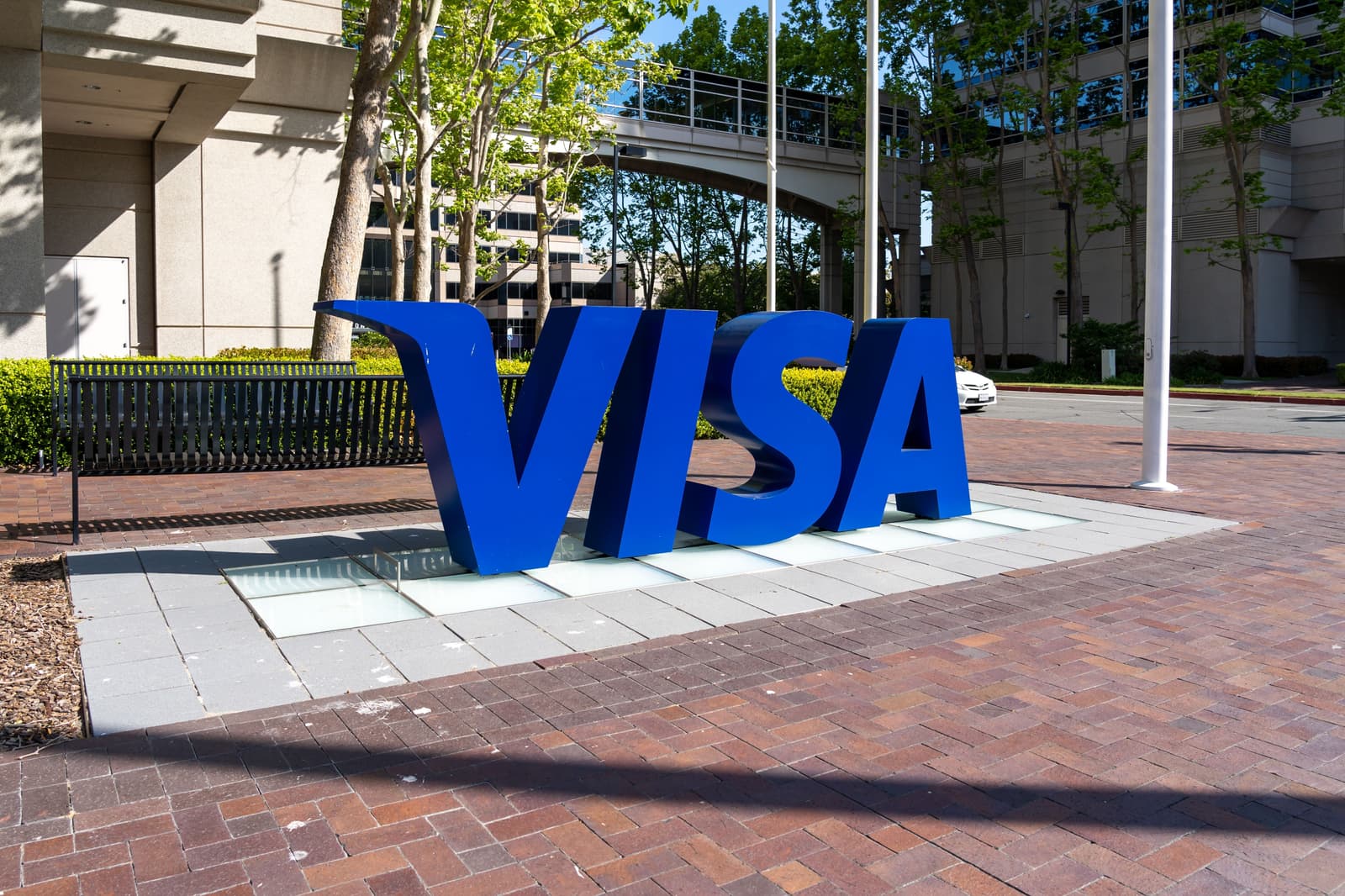Visa announced Wednesday it's partnering with leading AI developers to integrate their systems with Visa's payment network, potentially transforming how consumers shop by allowing AI agents to make purchases on their behalf. The initiative includes collaborations with Anthropic, Microsoft, OpenAI, Perplexity, Mistral, IBM, Stripe and Samsung.
What to Know:
- Pilot projects launched Wednesday with widespread implementation expected in 2025
- Visa envisions AI agents handling routine purchases while consumers set spending limits
- American consumer credit card balances reached $1.21 trillion (€1.1tn) at the end of last year
The San Francisco-based payment processing giant has spent six months working with AI developers to overcome technical obstacles before offering the service to consumers. For emerging AI companies, Visa's backing could strengthen their position against commerce leaders Amazon and Google, which are developing their own AI agents.
"We think this could be really important," Jack Forestell, Visa's chief product and strategy officer, said in an interview. "Transformational, on the order of magnitude of the advent of e-commerce itself."
Visa's initiative comes as the technology industry explores applications for "agentic" AI, though many implementations remain experimental and unavailable to the general public.
Current systems, built on large language models that power text-generating chatbots, can search for products but struggle to complete transactions.
"The early incarnations of agent-based commerce are starting to do a really good job on the shopping and discovery dimension of the problem, but they are having tremendous trouble on payments," Forestell explained. "You get to this point where the agents literally just turn it back around and say, 'OK, you go buy it.'"
The payment company positions itself as crucial in providing AI agents with secure access to financial resources needed for completing purchases. "The payments problem is not something the AI platforms can solve by themselves," Forestell said. "That's why we started working with them."
Digital Evolution and Consumer Control
The AI payment initiative follows Visa's announcement last year of major changes to U.S. credit and debit card operations, making physical cards increasingly obsolete. Many consumers already use digital payment systems like Apple Pay that transform phones into payment devices.
A similar digital credential verification process would authorize AI agents to act on customers' behalf. Forestell emphasized the system must ensure buyers, banks and merchants that transactions are legitimate and that Visa will handle disputes.
The company envisions AI agents handling routine shopping tasks that consumers find tedious, such as grocery shopping or complicated travel bookings. "In those situations, some people might want an agent that just powers through it and automatically goes and does stuff for us," Forestell said.
For luxury goods and experiential shopping, Forestell sees AI agents providing background assistance rather than replacing the consumer experience entirely.
Addressing potential concerns about credit card debt, Forestell emphasized that consumers will control their AI agents through clear spending limits and conditions.
Initially, AI agents will likely seek approval for specific purchases, such as airline tickets, before potentially gaining more autonomy within preset boundaries.
The Visa partnership offers AI developers access to valuable data about past credit card purchases, with customer consent. "Visa has the ability for a user to consent to share streams of their transaction history with us," said Dmitry Shevelenko, Perplexity's chief business officer. "When we generate a recommendation — say you're asking, 'What are the best laptops?' — we would know what are other transactions you've made and the revealed preferences from that."
Perplexity's chatbot already offers hotel booking and other purchase capabilities, though Shevelenko acknowledged these features remain in early stages. The San Francisco startup, alongside OpenAI, has indicated potential interest in acquiring Google's Chrome browser if antitrust action forces the tech giant to divest assets.
The Future of AI-Assisted Commerce
As AI payment systems evolve, they represent the next frontier in digital commerce evolution. By addressing the critical payment infrastructure gap, Visa positions itself at the intersection of artificial intelligence and financial technology, potentially reshaping how millions of consumers interact with retailers in coming years.
American consumers, already carrying substantial credit card debt, will need to navigate this new technological landscape carefully, balancing convenience with responsible spending as AI agents gain more autonomy in purchasing decisions.



